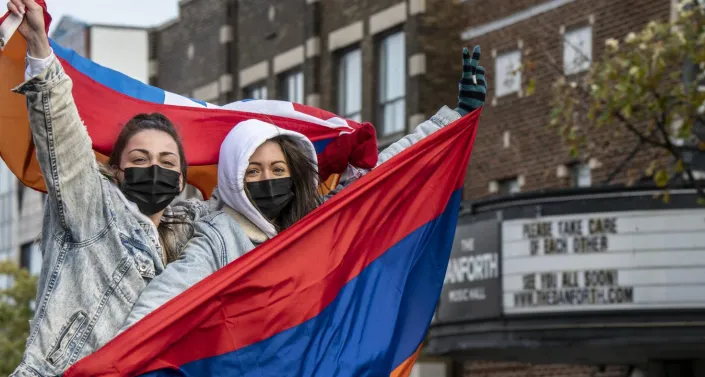
Armenia
The new political landscape that resulted after the protests in 2018 impacted the media significantly, and social media played a significant role in the way that the Armenian population experienced the brief war over Nagorno-Karabakh in 2020. Armenia is ranked 51 on the RSF Press Freedom Index.
Although private television networks are not controlled by the ruling political elite, problems persist related to a lack of financial independence and polarisation. Television is the main medium, and Russian-language broadcasts and printing media are also widely available. Few Armenians use newspapers as their main news source, so print runs are limited.
A free internet
The internet is perceived as an information landscape that should be beyond government control. Facebook is the most popular platform, and was used to mobilise protesters in 2018. It is still a key forum for political debate.
According to Freedom House, in 2019, Armenia ranked 1st in terms of internet freedom in the former Soviet Union, outside the Baltic states. However, misinformation in post-Soviet regimes is rife. With emotions running high during the Nagorno - Karabakh war, Armenians and Azerbaijanis battled on social media and got caught up in a maelstrom of false information. Meanwhile, investigative journalism is flourishing online and is well-positioned to play a major role in a national offensive against corruption.
Safety
Journalists continue to be targeted by certain political segments, as seen when the premises of Radio Azatutyun were attacked on 10 November 2020, shortly after the ceasefire. Equally, the involvement of security services in combatting disinformation is alarming. In early 2021, in an effort to address slander and disinformation, Prime Minister Pashinyan and his team initiated legislative changes that would affect the work of journalists and media. Several civil society and journalistic organizations in Armenia responded with concern to this initiative of the authorities, as it would “...cause significant damage to freedom of speech and expression; the ability of media resources for objective criticism will be limited. In addition, it had the potential to act as a signal for courts to become stringent against media outlets.”
Our partners in Armenia
In Armenia, Free Press Unlimited supports independent and professional media operating in the capital of the country and in its provinces, like Gyumri-based local TV broadcaster Gala TV. JAMnews, an online news outlet, covers Armenia and other countries of the South Caucasus as well as unrecognised territories in this region. Free Press Unlimited also works with Civilnet, an online television and media platform with a focus on human rights and democracy in Armenia.
Photo: Michael Swan
